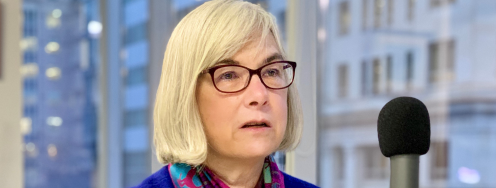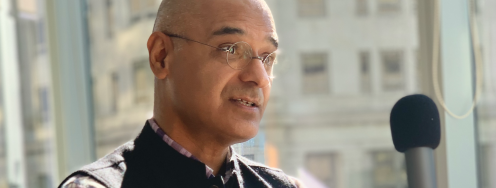Concern About South Korea’s Nuclear Interests
On the radar: Seoul questions the taboo; South Korean reprocessing; Congress undercutting diplomacy; Dempsey to Moscow; Iran’s security dilemma; and Journalists’ pickle on Pakistan.
On the radar: Seoul questions the taboo; South Korean reprocessing; Congress undercutting diplomacy; Dempsey to Moscow; Iran’s security dilemma; and Journalists’ pickle on Pakistan.
March 11, 2013 | Edited by Benjamin Loehrke and Alyssa Demus
S. Korea’s nuclear taboo - North Korea’s recent rhetoric has spurred a new sense of vulnerability in South Korea and caused some influential South Koreans to “break a decades-old taboo by openly calling for the South to develop its own nuclear arsenal,” report Martin Fackler and Choe Sang-hun for The New York Times.
--Poll perspective: “While few here think this will happen anytime soon, two recent opinion polls show that two-thirds of South Koreans support the idea.”
--Historical perspective: “Advocacy for a nuclear-armed South Korea has been virtually taboo since the early 1970s, when the country’s military dictator, Park Chung-hee, made a serious bid to develop a nuclear weapon, fearing that the United States might pull out of Asia after its defeat in Vietnam. After catching wind of the program, Washington forced Mr. Park, the new president’s father, to stop.” http://nyti.ms/Y4DN3r
Plutonium & proliferation - The U.S. and South Korea are working to renew their bilateral agreement for nuclear cooperation and have until perhaps June to finalize a new deal. South Korea is holding out for more freedom to reprocess or pyroprocess irradiated nuclear fuel from its reactors, which would increase the South’s access to plutonium.
--This is sparking a debate “about whether the U.S. has confidence that the ROK will stay in the NPT and not obtain a capability to produce nuclear weapons in a short period of time.” Mark Hibbs at Arms Control Wonk explores the negotiating positions amid rising tensions on the Korean Peninsula. http://bit.ly/Whryjj
Welcome to Early Warning - Subscribe to our morning email or follow us on twitter.
--Have a tip or feedback for the editor? Email earlywarning@ploughshares.org earlywarning@ploughshares.org. Want to support this work? Click here.
Unhelpful pressure - A peaceful resolution of the nuclear dispute with Iran will need Congressional support. Instead of allowing space for a deal to be reached, Congress is moving legislation that could increase sanctions and offer support for an Israeli strike on Iran at the time of its choosing. Such measures could harm negotiations, says a New York Times editorial. “Congress needs to give the talks time to play out and not make diplomatic efforts even harder.” http://nyti.ms/10D7eNd
Missile defense talks - Chairman of the Joint Chiefs of Staff Gen. Martin Dempsey is headed to Moscow to talk with his Russian counterpart. Missile defense is on the agenda. Said Chairman Dempsey, “I personally believe that we will find common ground with the Russian military.” From Carlo Munoz at The Hill. http://bit.ly/10vr6y4
More than sanctions relief - Reports from the last round of nuclear negotiations suggest that global powers are offering Tehran sanctions relief in exchange for Iranian concessions on its nuclear program. In the next round of talks, the P5+1 should not divorce nuclear issues from regional security issues, writes Ray Takeyh in The New York Times, but rather, “global powers should be more cognizant of Iran’s security dilemmas.”
--Global powers should address “issues as navigational rights, a mechanism for addressing border disputes, an early-warning system for military exercises, and even the prohibition of certain categories of weapons from the region” in addition to sanctions relief writes Takeyh. Full article here. http://owl.li/iKn3m
Events:
--Hearing: U.S.Strategic Command and U.S. Cyber Command. Gen. Robert Kehler, Commander, U.S. Strategic Command, and Gen. Keith Alexander, Commander, U.S. Cyber Command. March 12th 9:30 a.m. @ G50 Dirksen Senate Office Building, Washington. View webcast here. http://owl.li/izQJt
--”The United States and Global Missile Defense.” James Miller, Undersecretary of Defense for Policy, and 22 additional speakers. March 12th, 9:00 a.m.-5:00 p.m. @ Park Hyatt Hotel, 1201 24th St. N.W. Webcast here. http://owl.li/iKu28
--”Deterrence and Stability in South Asia.” Vipin Narang and Christopher Clary. March 12th 1:00-2:30 p.m. @ 1111 19th St. N.W. 12th Floor. RSVP here. http://owl.li/iKv47
--”DOE Management and Oversight of Its Nuclear Weapons Complex: Lessons of the Y-12 Security Failure,” Hearing of the House Energy and Commerce Subcommittee on Oversight and Investigations. March 13 @ 10:00am in Rayburn 2322. http://1.usa.gov/YVWtys
--”Strategic Stability: The Solution, the Problem, or the Cause of Confusion?” James Acton, Matthew Rojansky and Christopher Ford. March 14th 9:30-11:00 a.m. @ Carnegie Endowment. RSVP here. http://owl.li/iKw2U
--”Strategy, Not Math: The Emerging Consensus on National Security in an Era of Austerity.” Barry Blechman, Steve Ellis, and Nora Bensahel. March 14th 12:00 p.m. @ Cato Institute. Details and RSVP here. http://owl.li/izRKO
--”Sustaining U.S. Nuclear Forces on a Tight Budget.” Barry Blechman, Russell Rumbaugh, Tom Collina and Daryl Kimball. March 19th from 9:30-11:00am at Carnegie. Details and RSVP. http://bit.ly/XUNrVs
Dessert:
Reporting on Pakistan - U.S. journalists often question the security of Pakistan’s nuclear arsenal against the threat of theft and mention U.S. contingency plans if Pakistan lost control of its weapons. This tends to inflame views in Pakistan that the U.S. plans to steal Pakistan’s nukes.
--The tension between the two countries puts journalists in a pickle between promoting transparency and antagonizing threat perceptions. Elaine Grossman at National Journal describes “Why Almost Nobody Likes News About Pakistani Nuclear Security.” http://bit.ly/XilgmP



